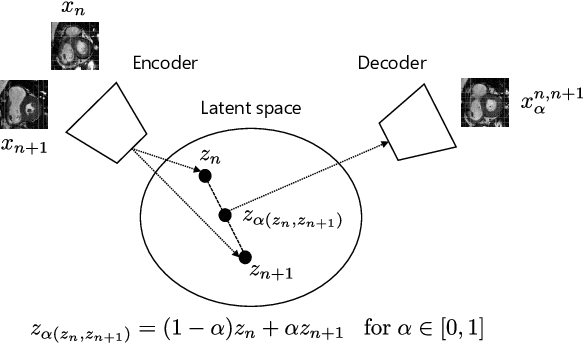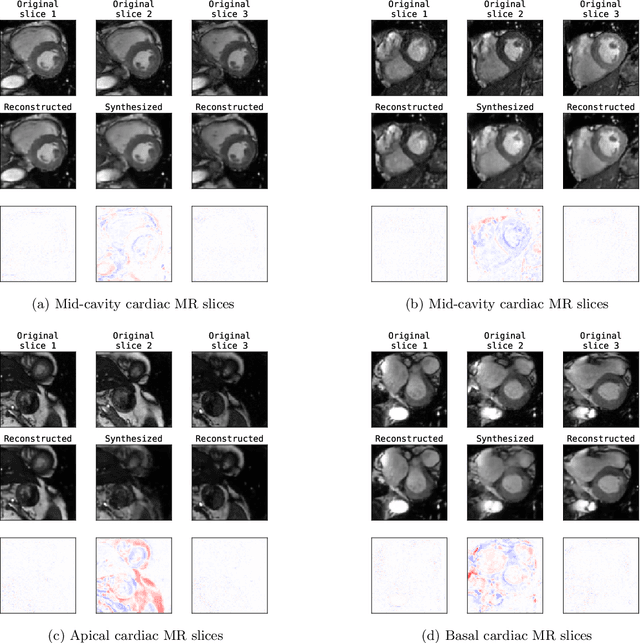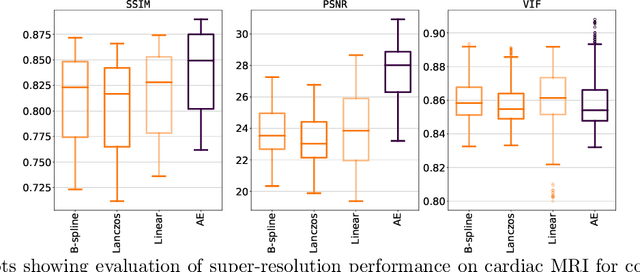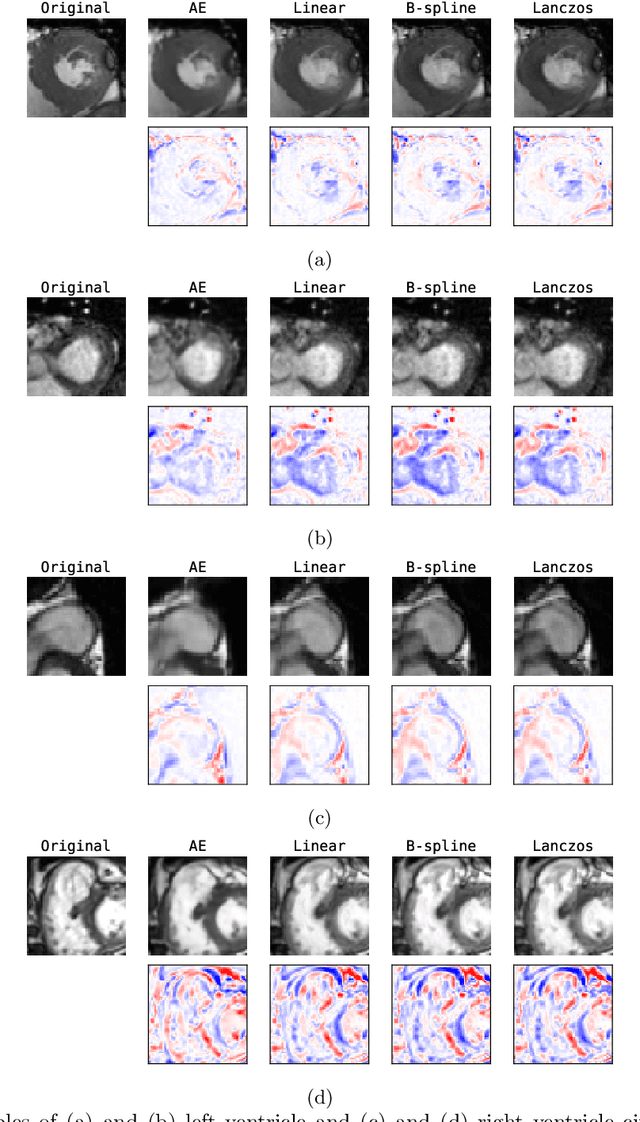Unsupervised Super-Resolution: Creating High-Resolution Medical Images from Low-Resolution Anisotropic Examples
Paper and Code
Oct 25, 2020



Although high resolution isotropic 3D medical images are desired in clinical practice, their acquisition is not always feasible. Instead, lower resolution images are upsampled to higher resolution using conventional interpolation methods. Sophisticated learning-based super-resolution approaches are frequently unavailable in clinical setting, because such methods require training with high-resolution isotropic examples. To address this issue, we propose a learning-based super-resolution approach that can be trained using solely anisotropic images, i.e. without high-resolution ground truth data. The method exploits the latent space, generated by autoencoders trained on anisotropic images, to increase spatial resolution in low-resolution images. The method was trained and evaluated using 100 publicly available cardiac cine MR scans from the Automated Cardiac Diagnosis Challenge (ACDC). The quantitative results show that the proposed method performs better than conventional interpolation methods. Furthermore, the qualitative results indicate that especially finer cardiac structures are synthesized with high quality. The method has the potential to be applied to other anatomies and modalities and can be easily applied to any 3D anisotropic medical image dataset.
 Add to Chrome
Add to Chrome Add to Firefox
Add to Firefox Add to Edge
Add to Edge